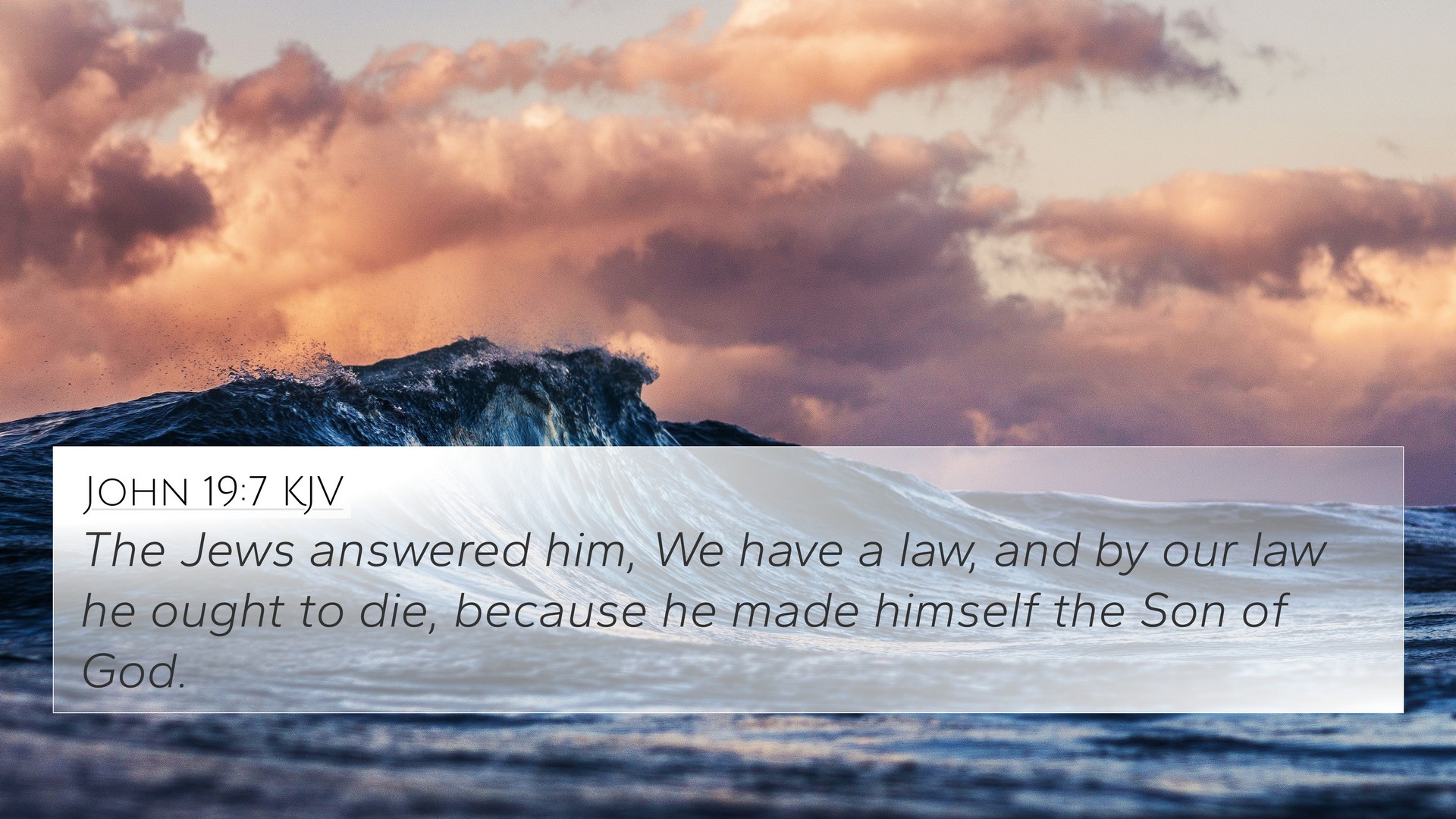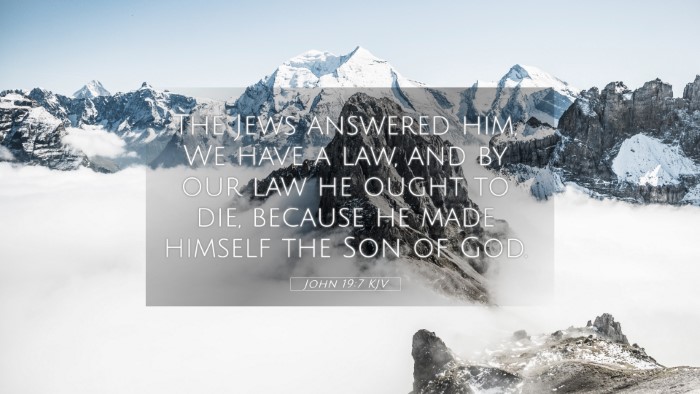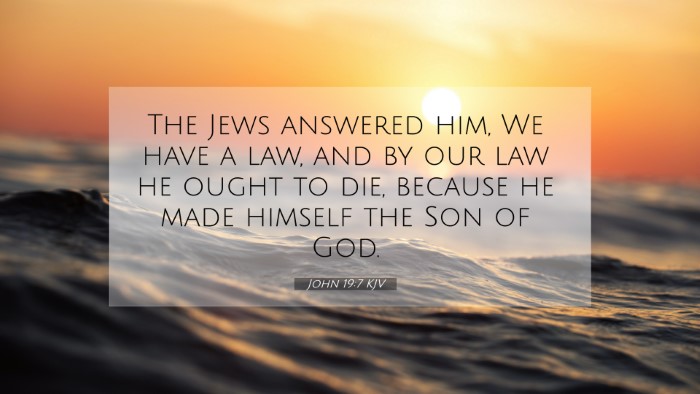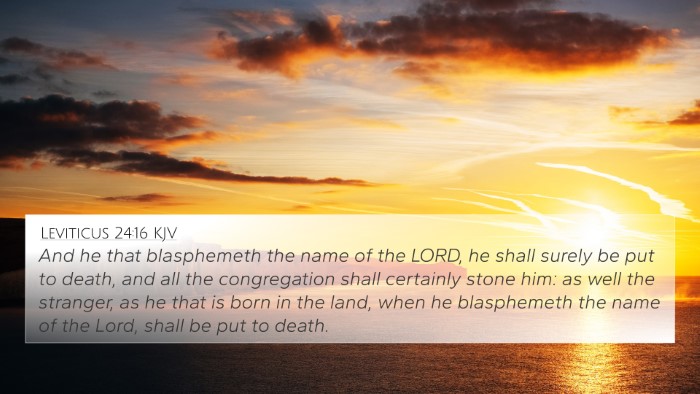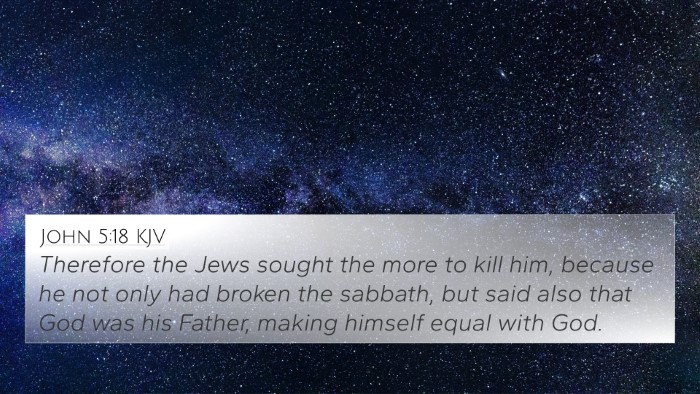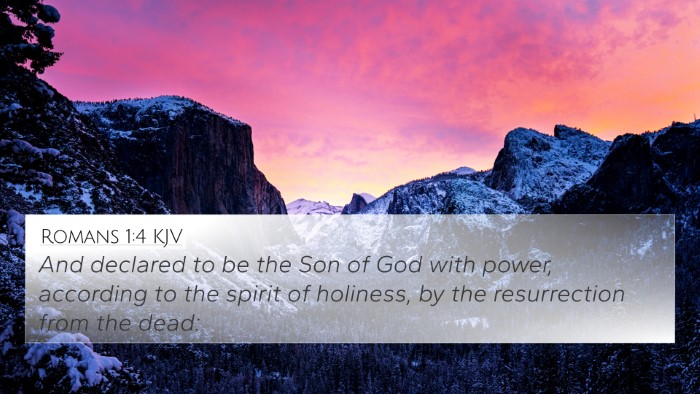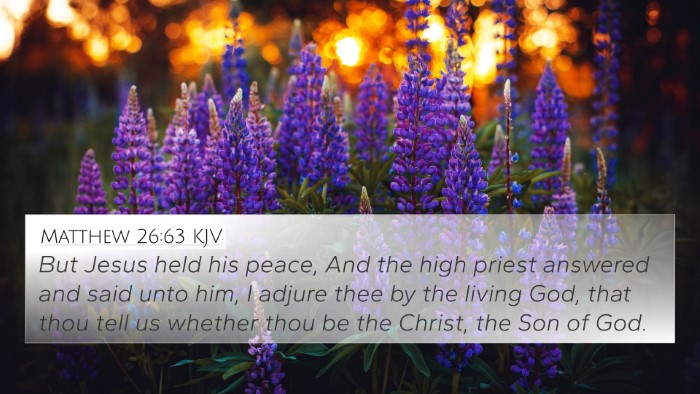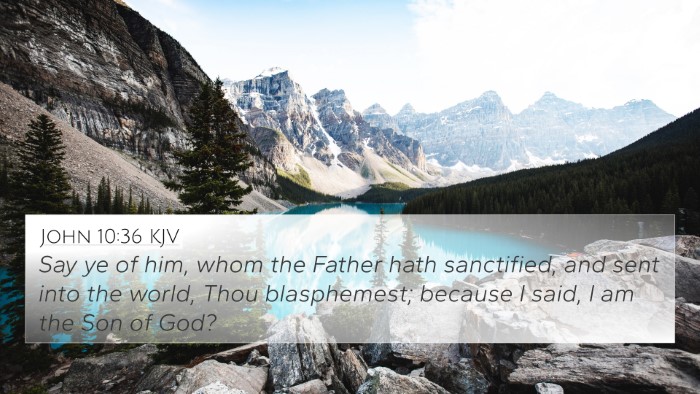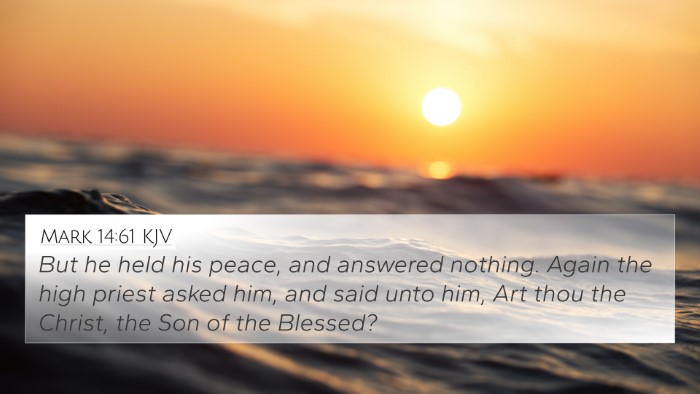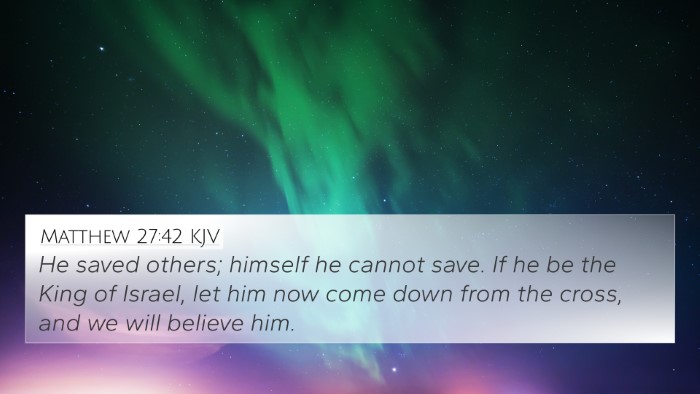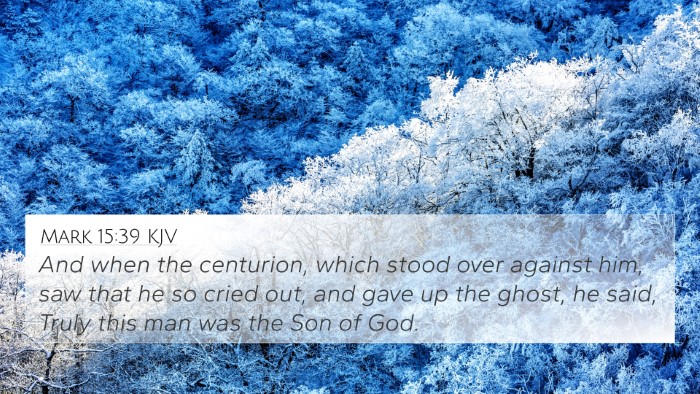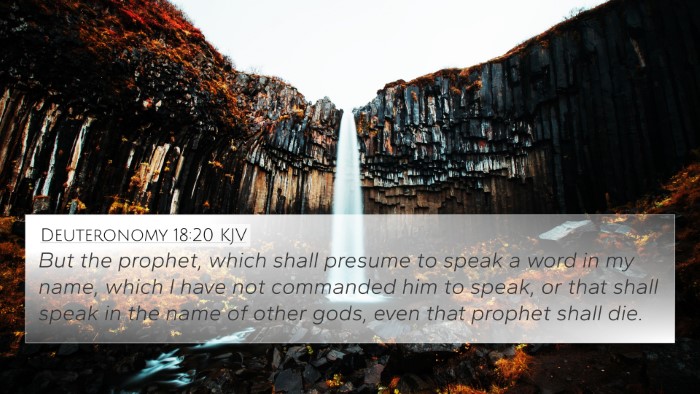Understanding John 19:7
John 19:7 (KJV): "The Jews answered him, We have a law, and by our law he ought to die, because he made himself the Son of God."
Summary of John 19:7
In this verse, the Jewish leaders confront Pontius Pilate about Jesus, asserting their legal right to seek His execution. They reference their law, indicating that Jesus' claim to divinity is, in their view, a blasphemous act deserving of death. It highlights the tension between the Jewish law and the claims of Jesus as the Messiah and Son of God.
Interpretative Insights
Multiple public domain commentaries provide valuable insights into the meaning of this pivotal verse:
- Matthew Henry: He emphasizes the gravity of the accusation against Jesus, noting how the Jewish authorities leveraged their religious law to justify their actions. Henry suggests that their fervent adherence to the law blinds them to the truth of Jesus' identity.
- Albert Barnes: He explains that the law they reference pertains to blasphemy, where the claim of being the Son of God is punishable by death according to their interpretation of the law. Barnes elaborates on the irony that the very law they claim to uphold is fulfilled in the person of Jesus, whom they condemn.
- Adam Clarke: Clarke offers a historical perspective, noting that this confrontation illustrates the profound religious conflict of the time. He highlights the misunderstanding of Jesus' nature and mission, framing it within the broader context of spiritual blindness that afflicts the religious leaders.
Cross-References for John 19:7
To deepen our understanding, here are several cross-references that relate to the themes of John 19:7:
- Leviticus 24:16: "And he that blasphemeth the name of the LORD, he shall surely be put to death..." - Foundations of the Jewish law concerning blasphemy.
- Matthew 26:63-65: "But Jesus held his peace. And the high priest answered and said unto him, I adjure thee by the living God, that thou tell us whether thou be the Christ, the Son of God." - Connecting the trial of Jesus to the blasphemy charge.
- John 10:33: "The Jews answered him, saying, For a good work we stone thee not; but for blasphemy; and because that thou, being a man, makest thyself God." - Previous accusations of blasphemy against Jesus.
- Isaiah 53:3: "He is despised and rejected of men; a man of sorrows, and acquainted with grief..." - Prophecy fulfilled in the rejection of Jesus.
- John 5:18: "Therefore the Jews sought the more to kill him, because he not only had broken the sabbath, but said also that God was his Father, making himself equal with God." - Highlights the escalating tension over Jesus' claims.
- Acts 7:51-53: "Ye stiffnecked and uncircumcised in heart and ears, ye do always resist the Holy Ghost: as your fathers did, so do ye." - Unveiling the long history of rejection of God's messengers.
- Romans 1:21: "Because that, when they knew God, they glorified him not as God, neither were thankful; but became vain in their imaginations, and their foolish heart was darkened." - Illustrating the consequences of rejecting divine truth.
Thematic Connections
This verse not only emphasizes the historical context of Jesus' trial but also opens up discussions around key themes in Scripture:
- The Law and Christ: The conflict between the law of Moses and the fulfillment of that law in Christ.
- Revelation of Identity: The progression of Jesus' identity as the Son of God throughout Scripture and the responses to it.
- Blasphemy and Authority: The authority of Jesus versus the authority of religious tradition.
- Rejection of Prophecy: How prophetic messages were rejected by the leading religious authorities.
Tools for Further Study
For those looking to deepen their understanding of Biblical texts, utilizing tools for cross-referencing can be immensely beneficial:
- Bible Concordance: A systematic indexing of words and phrases that assists in finding cross-references.
- Bible Cross-Reference Guide: Guides available that link verses by theme or topic to enhance study.
- Bible Chain References: Systems that provide a sequence of related verses for interconnected study.
Conclusion
John 19:7 serves as a critical point in the narrative of Jesus' trial, encapsulating key legal, theological, and historical elements. By engaging with cross-references and utilizing theological commentaries, one can gain a richer understanding of this pivotal moment. The connections between the law, the prophets, and Christ highlight the profound truth that Jesus embodies, challenging His contemporaries while offering eternal truths for believers today.
